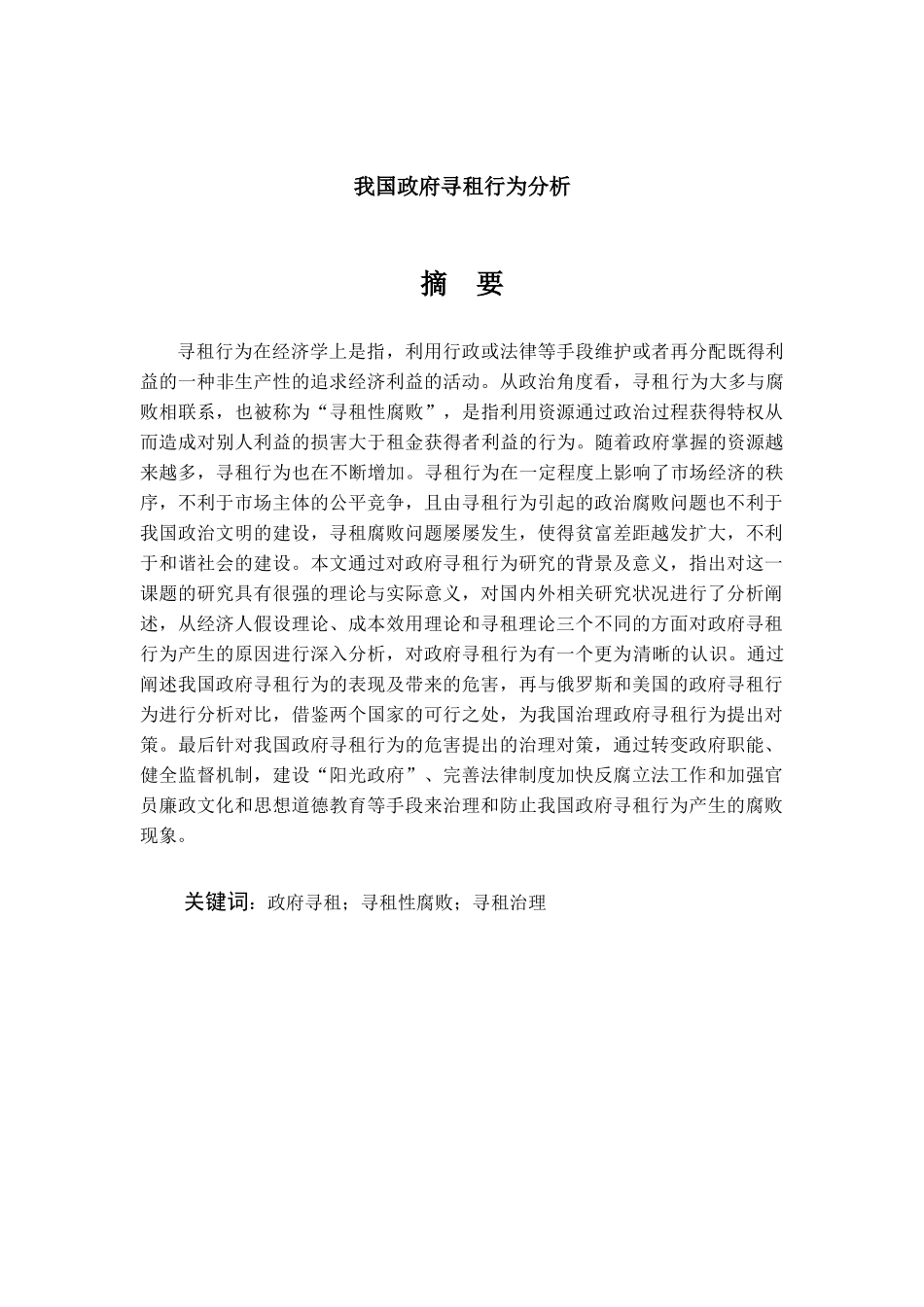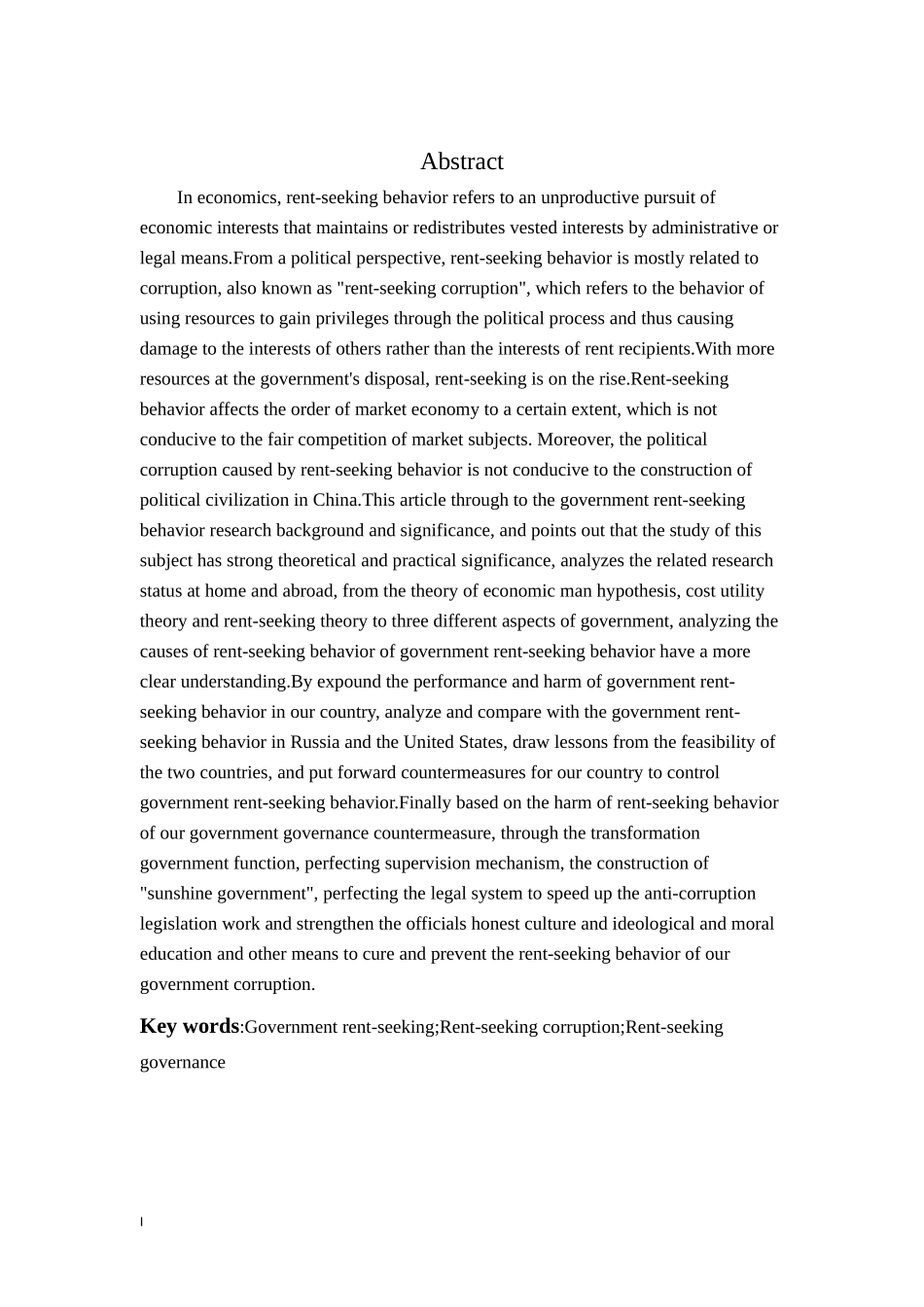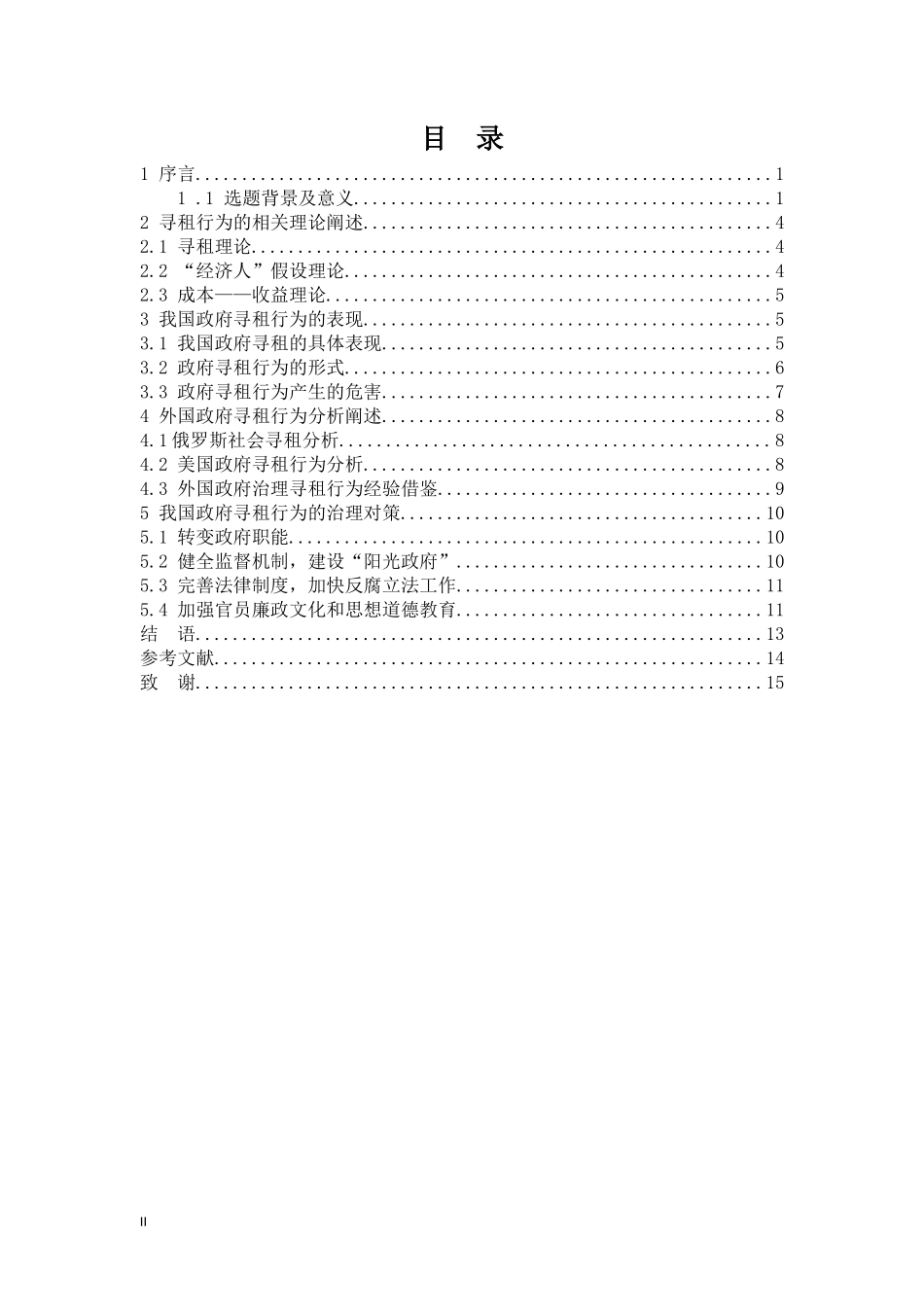我国政府寻租行为分析摘 要寻租行为在经济学上是指,利用行政或法律等手段维护或者再分配既得利益的一种非生产性的追求经济利益的活动。从政治角度看,寻租行为大多与腐败相联系,也被称为“寻租性腐败”,是指利用资源通过政治过程获得特权从而造成对别人利益的损害大于租金获得者利益的行为。随着政府掌握的资源越来越多,寻租行为也在不断增加。寻租行为在一定程度上影响了市场经济的秩序,不利于市场主体的公平竞争,且由寻租行为引起的政治腐败问题也不利于我国政治文明的建设,寻租腐败问题屡屡发生,使得贫富差距越发扩大,不利于和谐社会的建设。本文通过对政府寻租行为研究的背景及意义,指出对这一课题的研究具有很强的理论与实际意义,对国内外相关研究状况进行了分析阐述,从经济人假设理论、成本效用理论和寻租理论三个不同的方面对政府寻租行为产生的原因进行深入分析,对政府寻租行为有一个更为清晰的认识。通过阐述我国政府寻租行为的表现及带来的危害,再与俄罗斯和美国的政府寻租行为进行分析对比,借鉴两个国家的可行之处,为我国治理政府寻租行为提出对策。最后针对我国政府寻租行为的危害提出的治理对策,通过转变政府职能、健全监督机制,建设“阳光政府”、完善法律制度加快反腐立法工作和加强官员廉政文化和思想道德教育等手段来治理和防止我国政府寻租行为产生的腐败现象。关键词:政府寻租;寻租性腐败;寻租治理IAbstractIn economics, rent-seeking behavior refers to an unproductive pursuit of economic interests that maintains or redistributes vested interests by administrative or legal means.From a political perspective, rent-seeking behavior is mostly related to corruption, also known as "rent-seeking corruption", which refers to the behavior of using resources to gain privileges through the political process and thus causing damage to the interests of others rather than the interests of rent recipients.With more resources at the government's disposal, rent-seeking is on the rise.Rent-seeking behavior affects the order of market economy to a certain extent, which is not conducive to the fair competition of market subjects. Moreover, the...












